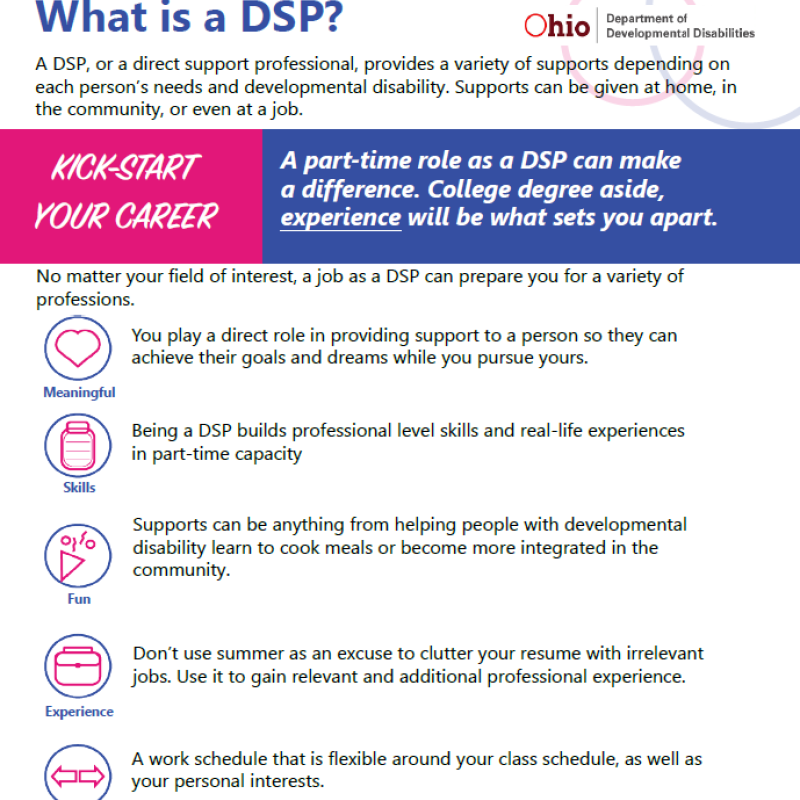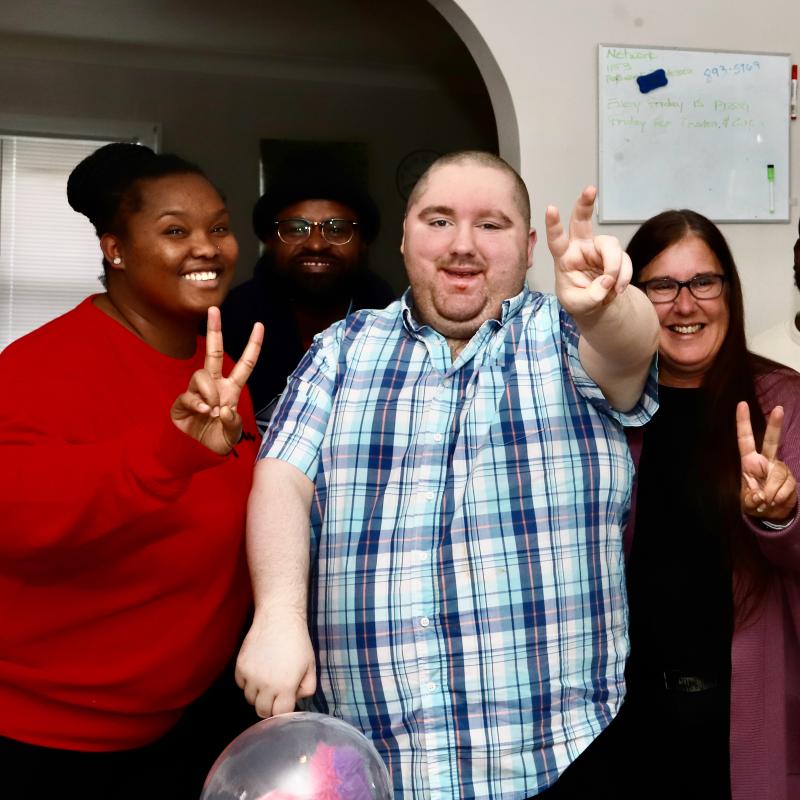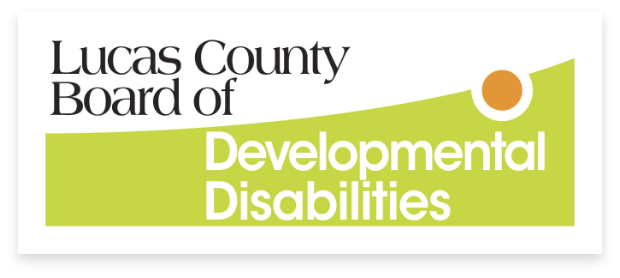
What is a direct support professional?
All DSPs help people live, learn, work and play in their communities.
DSPs support individuals where they live by:
- Helping them live as independently as possible
- Helping ensure they are healthy and safe
- Helping with daily life activities like cooking, cleaning, dressing, bathing, shopping, transportation and community activities
DSPs support individuals by:
- Taking small groups into the community for volunteer and leisure activities
- Teaching independence and safety skills
- Encouraging them to try new things, make more choices, and get involved in more activities and hobbies
DSPs support individuals in finding and keeping jobs by:
- Helping them identify talents, interests, goals and abilities to discover long-term jobs
- Providing one-on-one marketing and recruitment services to connect them with employers
- Providing job coaching, on-site support and training at employment sites

What standards are expected of a direct support professional?
To work as a DSP, individuals must:
- Be 18 years old. (Under currently waived rules, DSPs can be 16 or 17 and provide a limited scope of service.)
- Have a valid social security number and either state of Ohio identification, a valid driver’s license or other government-issued photo identification.
- Have a minimum of a high school diploma or general education development certificate. (This requirement may be waived for 16- or 17-year-olds.)
- Be able to read, write and understand English.
- Have a driving record with less than six points. (Some employment opportunities may be available for non-drivers.)
- Have a background free of offenses that preclude employment. (Review this document for a current list of exclusions.)
- Pass a drug screen. (This is required for those who drive to and from day services and per employer specific policy.)
- Some employers may also require that applicants can lift 50 pounds or meet other physical standards.
If you would like to apply as a DSP, please complete the form below.
For any questions or concerns about becoming an independent provider, or an agency provider, please contact our Provider Support Department at askprovidersupport@lucasdd.org or 419.381.6123.


